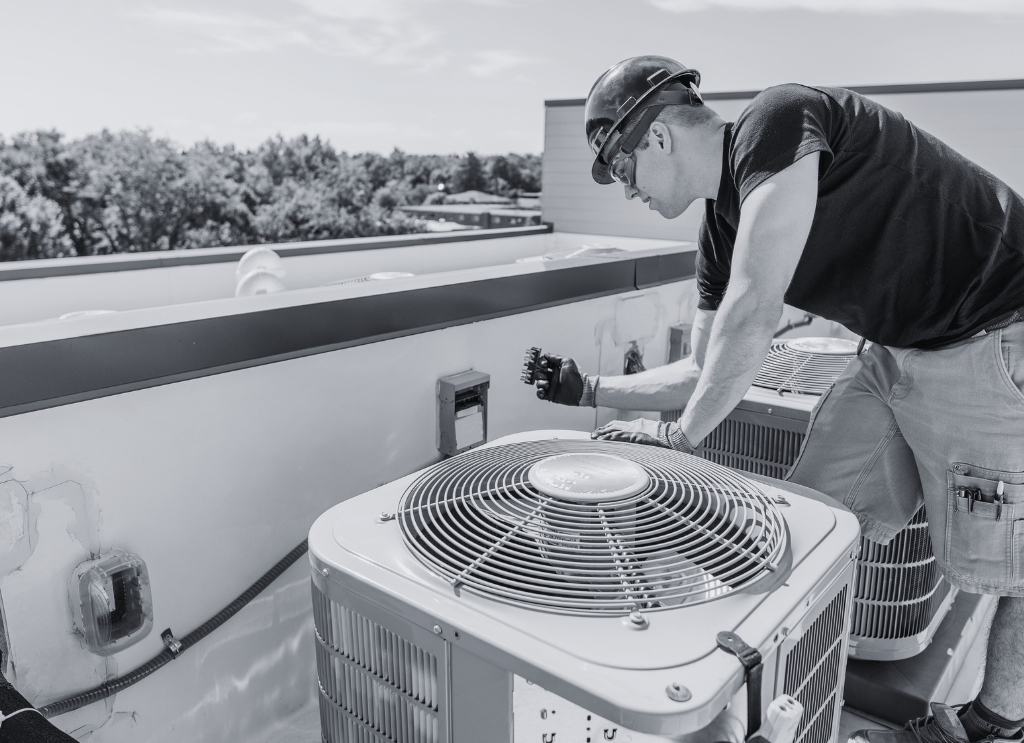When someone lands on your HVAC website, they’re usually not there to browse—they’re there to solve a problem. But if they can’t find clear answers fast, they’ll leave just as quickly.
That’s where a well-crafted FAQ section comes in.
FAQs are more than just a helpful add-on—they’re one of the most underrated tools for boosting trust, improving your heating and cooling service page rankings, and converting browsers into booked appointments. They address the real concerns your customers have, answer objections before they come up, and give Google the exact language it needs to serve your business in search results.
In this post, we’ll break down why FAQs matter, how they improve HVAC SEO, and how to build a section that turns curious clicks into confident calls.
Why FAQs Belong on Every Heating and Cooling Service Page
When potential customers visit your heating and cooling service pages, they’re often looking for quick reassurance: Can you solve their problem? Are you local? How much will it cost? If your website doesn’t answer those questions upfront, they may leave—or worse, move on to a competitor who does.
An FAQ section is a simple way to bridge that gap.
It keeps users engaged by addressing common concerns right on the page. Instead of making visitors hunt for information or call to clarify basic details, you give them what they need instantly—which builds confidence and speeds up the decision-making process.
For HVAC companies, this also boosts perceived credibility. A thoughtful FAQ section signals that you know what your customers are thinking—and that you’re prepared to answer with honesty and clarity.
On top of that, FAQs contribute to better page performance metrics (like time on page and reduced bounce rates), which are strong trust signals for Google and help with SEO.
In short: if your service pages are missing FAQs, they’re missing opportunities to connect, convert, and climb in the rankings.
How FAQs Improve Your HVAC SEO (It’s Not Just About Keywords)
Search engines—and the people using them—love direct answers. That’s why FAQ sections are a hidden SEO powerhouse for heating and cooling service pages.
When you include commonly searched questions and answers, you’re naturally weaving in long-tail keywords and conversational search phrases like “how much does HVAC maintenance cost?” or “what’s the best temperature to set my thermostat in winter?” These are the exact types of queries people type—or speak—into Google and voice assistants.
But the SEO benefits go beyond keyword stuffing.
FAQs improve:
- Engagement: Visitors stay on your page longer, which sends positive signals to Google.
- Featured snippet potential: Clear, concise answers often get pulled into Google’s “People Also Ask” or “Featured Snippet” boxes.
- Content depth: Search engines value rich, helpful content. An FAQ section adds relevant context without overwhelming the main copy.
By structuring your FAQs properly—using headers, clear formatting, and schema markup—you make it easier for both search engines and real people to find the answers they’re looking for.
The result? More impressions, better rankings, and a stronger online presence for your heating and cooling services.
What to Include in HVAC FAQs: The Questions Customers Actually Ask
A strong FAQ section isn’t about filling space—it’s about answering the questions your customers are already asking in person, over the phone, or in search bars.
Start by focusing on three categories of questions that drive both trust and conversions:
1. Pre-Sale Questions
These ease hesitation and encourage action:
- How much does a typical heating and cooling service cost?
- Do you offer free estimates?
- Are emergency HVAC repairs available on weekends?
2. Service-Specific Questions
These help users understand your services and make informed choices:
- What’s the difference between a heat pump and a traditional AC unit?
- How often should I schedule HVAC maintenance?
- Do you install smart thermostats?
3. Trust-Building Questions
These reinforce your credibility and professionalism:
- Are your technicians licensed and insured?
- What brands or systems do you service?
- Do you offer any warranties or guarantees?
The best source of FAQs? Your own customers. Listen to the questions your office staff and techs hear daily—that’s the content your website should be answering, too.
Formatting Tips That Boost Trust and SEO
It’s not just what your FAQ section says—it’s how you present it that makes it effective for both users and search engines.
Here’s how to format your HVAC FAQs for maximum impact:
Use Proper Headings
Structure each question as an H3 or H4 under your main FAQ H2. This makes the content easy to scan and allows search engines to recognize the hierarchy of information.
Keep Answers Short and Clear
Aim for 2–4 sentence answers that get straight to the point. Use plain language—no technical jargon unless your customers regularly use it. If a topic needs more detail, link to a full service page.
Link Internally When It Makes Sense
For example, if someone asks, “Do you offer AC repair?”, your answer can briefly explain the service and then link to your dedicated AC repair page. This improves site navigation and helps distribute SEO value across your site.
Use FAQ Schema Markup
This behind-the-scenes code tells Google that your content is formatted as a Q&A, which can help it show up in rich results or the “People Also Ask” section.
Make It Easy to Find
Place your FAQs midway down the service page—not buried at the bottom. This helps people who are scrolling for more info get the answers they need without digging.
With the right format, your FAQ section becomes more than helpful—it becomes a trust-building, SEO-boosting conversion tool.
How FAQs Help Convert Visitors into Customers
Trust is everything in the HVAC industry—especially when someone’s considering who to let into their home. A well-crafted FAQ section builds that trust by proactively answering questions, reducing uncertainty, and helping visitors feel more confident in their next step.
Think of it this way: a potential customer may be hesitant to call because they’re unsure about pricing, emergency availability, or whether you service their specific HVAC system. If your FAQ section addresses those concerns directly, you remove the friction that could stop them from contacting you.
Clear answers also position your business as helpful and knowledgeable, which can be a powerful differentiator in a crowded market. And because the information is written in your voice and style, it reinforces your brand and makes the visitor feel like they’re already in conversation with you.
When customers feel informed, they’re more likely to take action. A smart FAQ section doesn’t just provide information—it turns uncertainty into phone calls.
Common Mistakes to Avoid With HVAC FAQ Sections
While adding FAQs to your heating and cooling service pages can be a huge win, a poorly executed section can actually hurt your site more than help it. Here are some of the most common mistakes HVAC companies make—and how to avoid them:
1. Copying Generic Questions from Other Sites
Your customers and your service area are unique. FAQs should reflect your business, not a boilerplate list copied from a competitor or manufacturer website.
2. Writing Answers That Are Too Long (or Too Technical)
If your answers feel like a textbook or a code manual, visitors will tune out. Keep it short, helpful, and in plain English.
3. Burying FAQs at the Bottom of the Page
Don’t treat your FAQ like an afterthought. If it’s helpful, place it in a spot where people are likely to see it—typically just below your main service content or call-to-action.
4. Forgetting to Update Seasonally
The questions your customers ask in July (about AC repairs) won’t be the same as in January (when furnace issues spike). Revisit and revise your FAQs throughout the year to keep them relevant.
A strong FAQ section should evolve as your business and customer base do. Treat it as a living part of your content—not a one-time checklist item.
Wrap Up: Why FAQ Sections Help Your Heating and Cooling Service Stand Out
In the competitive HVAC industry, small details make a big difference—and your FAQ section is one of those quiet powerhouses that can dramatically improve both customer experience and SEO performance.
By anticipating questions, building trust, and improving your search visibility, FAQs help your heating and cooling service pages do more than just inform—they persuade. They keep visitors engaged, eliminate doubts, and make it easier for people to choose you over the competition.
Need help writing or optimizing your HVAC FAQs for better performance? BuildPro Media specializes in HVAC SEO improvements and content strategies that build trust, increase visibility, and turn clicks into calls. Contact us today to strengthen your service pages and drive more leads.

